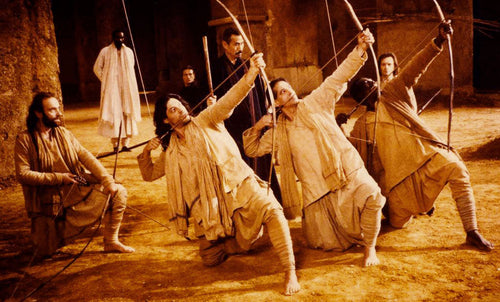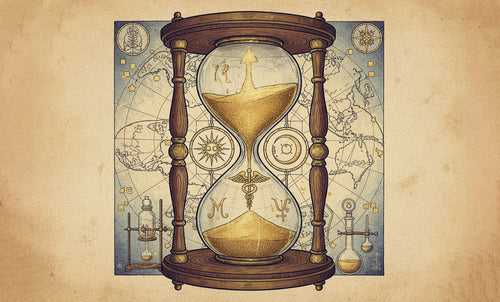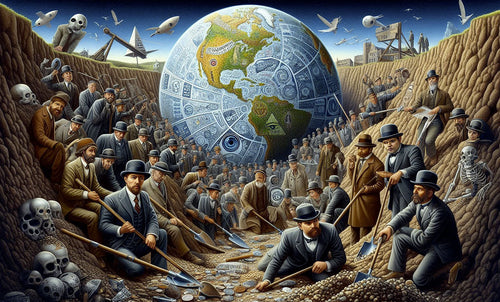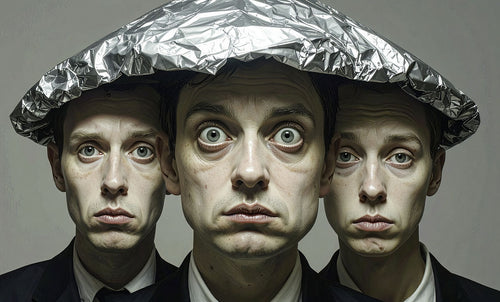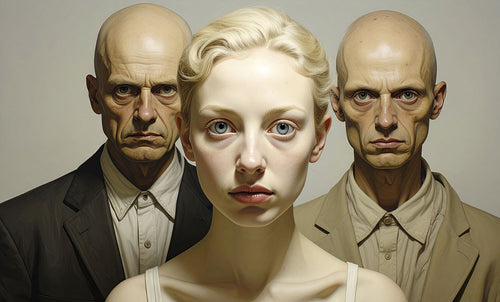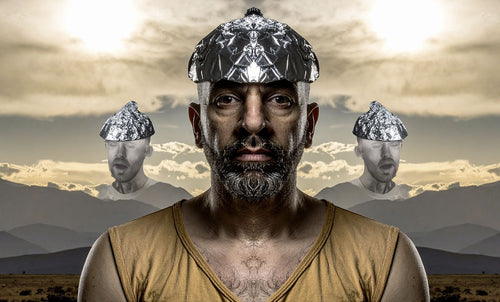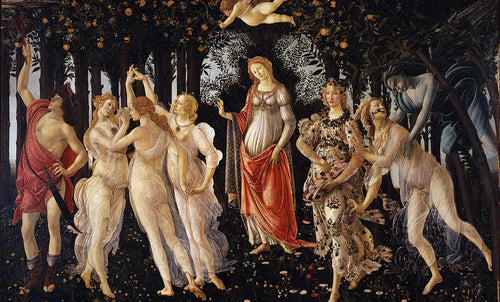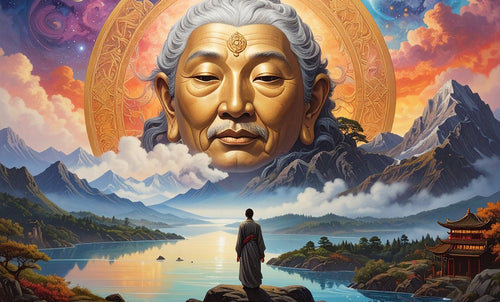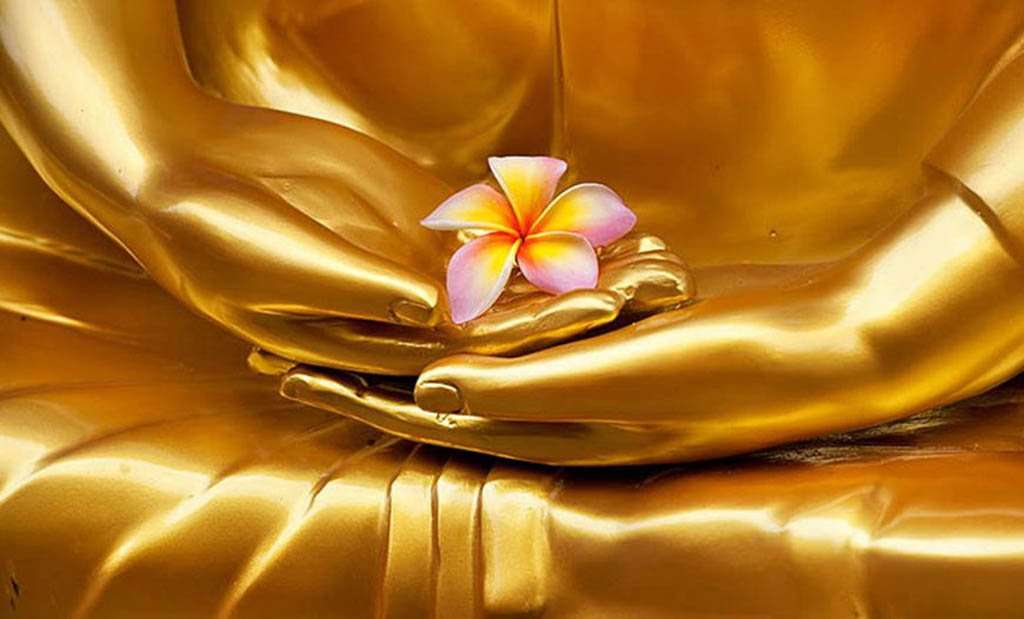
Buddhism Theirs and Yours
Leonardo AnfolsiBy now an irreparable split has occurred between Eastern and Western Buddhism, between Buddhism as an institution and Buddhism as an awakening or pastime.
It is a situation that would seem as new as it is inevitable, which does not constitute, and should not constitute, a betrayal of the past, but rather a new challenge to live these times to the fullest.
It's nothing new, in fact, provided that one has read a little history of Buddhism and is not stuck on the ridiculous assumption "better not to study so as not to cultivate the ego and too many thoughts". Many changes have occurred over the centuries, in Buddhism, and more than ever in Zen.
To disprove the an-egoistic concerns of many, Master Saicho triggered a tug-of-war with the imperial court, in the 8th century, since by bringing Tendai university Buddhism to Japan he had understood that partial monastic vows were needed to adhere to the lay conception of life typical of the Japanese mentality; the day before yesterday, in the 19th/20th centuries, Zen masters had to obey the emperor and the new materialistic/industrial course, extinguishing all their charisma, their power and even arming themselves and their monks to adhere to the imperialist course announced in the Meiji era.
In the midst of these eras, in this sense, everything happened. Not to mention what happened in China.
So. What interests us is to understand that when we say “zen”, apart from the amusing contemporary diaeresis between “square” and “beat” zen, we have buckets and buckets of historical variables, experiments, experiences and confirmations or eliminations over the course of two thousand five hundred years.
If we are to believe that the Buddha one day raised a flower, astonishing Khasyapa.
We'll talk about it soon.
Two parties oppose each other in the world of spiritual fiction: traditionalists and innovators.
I'll make it short for those who are not interested in the topic, so that they can skip the next paragraph; some claim to represent tradition or, in any case, to mean something in its secular continuity, especially by emphatically quoting its words and achievements; others believe that it is time to innovate what tradition - worn out and obsolete for them - would represent, and that these people most likely do not know in truth, but only in words. As you can see, the problem consists mainly of words, quoted with impunity or poorly digested.
The next (avoidable) paragraph
Regarding traditionalist foolishness, I refer you to the sensible responses that René Guénon received, due to his more Gallic statements, from Henry Corbin, Anand Kentish Coomarswamy, Arturo Reghini and Marco Pallis.
On the contrary, a typical case of innovation, therefore of poor digestion of tradition, was Jiddu Krishnamurti, who certainly deserves credit for having dialogued with some scientists open to reasoning, but unfortunately that disaster of his (non)teaching in which sociology is confused with (collective?) research for awakening, in a sort of literary/epochal epic that reminds us of the good old prophetic times, in which he figured as the new epochal avatar “Alcyone”. I have personally observed the drift of the foundation that bears his name, in Ojai, CA, where a few and hidden free spirits support the dismay of these times.
And to say that He himself certainly could not be called "an unaware person", just as the naive Guénon certainly was not, but such is the pervasive power that the spirit of the times has, when it is accepted because of some personal reactivity.
Direct transmission versus diaconal transmission
Leaving these disquisitions behind, let's get to the point: tradition is either realized - therefore embodied - or simply represented. Direct transmission versus diaconal transmission or, worse, vicarial/symbolic, as often happens in the Catholic and Masonic spheres. Moreover, already in Chan Buddhism, there was talk of a "transmission of the lamp" which in reality did not consist of a transmission of anything. Why?
Does it happen or doesn't it happen?
Does the whole universe participate?
Is it the whole universe?
What happens to the “world as we know it” at the moment of this naked perception of reality?
Does anything like “the truth” survive in this immensity?
...And what is the “power of experience” that this pedantic Zen guy keeps harping on about?
Isn’t life itself “experience”?
And what about those who seek to meet or hear angels? Isn't experience enough for them, or, say, looking at the sky?
And if they really met an angel, would they be able to recognize him? Or would they be able to survive the alarm, the fear, the power of that encounter?
And aliens? Isn't he an alien to himself who does not see the mystery in himself/everywhere?
Will he have to shudder with fear or mystery – cinematic though – to feel alive or will he be able to realize that he is living? What kind of tremor or tsunami is it to really live?
When will this innate sun, this naked experience, finally explode?
Do we call this explosion “sharing,” which is perhaps more acceptable today, or do we call it “entrance,” if not “ingredere,” as it is conceived for example in Dzogchen as “great refinement”? It happens in very real time.
A little bit of Tibet
It is interesting to note, according to recent studies, how the Dzogchen tradition was historically related to the Chán/Zen one; the Tibetans called héshang móhēyǎn, or “oshang of the Mahayana school” (和尚摩訶衍), the Chán elders stationed in Samye, Tibet, right where the famous debate between Indian versus Chinese Buddhists took place in front of King Tri Song Detsen.
Here appears right in the Tibetan tradition - when Dzogchen is harnessed in one of the Mahayana schools - an "initiation to Rigpa" that has also been conferred by the current Dalai Lama, that is, a symbolic/diaconal introduction to the primordial state, based on formulas and a sharp little scream. It is certainly difficult to say whether it makes sense, while instead - as in Chán/Zen and in authentic Dzogchen - the transmission of the lineage has always been considered only in terms of direct experience and therefore as an individual experience of awakening, facilitated by a master and a discipline. Be it an experience of awakening - translated into "Zenese" - as kensho (provisional) or satori (well established). "Satori" is the point of no return.
The Bonpo Dzogchen master Shardza Tashi Ghyaltsen actually had, as a boy, an experience of true satori, described just as a chatty Zen monk like me would have told it.
Kalyāṇamitra or upādhyāya?
We find the same master in Zen, Dzogchen, but also in the entire historical Buddhist tradition, both in the more traditional Theravada and in the innovative Mahayana.
What or who is the master in all this?
He is neither a tulku nor a rimpoche, with their imposing canopies and thrones, nor a roshi cloaked in heavenly silks, but the old kalyāṇamitra, the spiritual friend from the Buddha's time, the oshang (“elder”).
Kalyāṇa-mittatā (善知識) is noble-friendship or spiritual-friendship.
The kalyāṇa-mittatā can be found in the Upaddha Sutta (SN 45.2) of the Pali Canon, where there is a conversation between the Buddha and his disciple/cousin Ananda where the latter declares: "This is half of the holy life, lord: admirable friendship, admirable company, admirable comradeship."
The Buddha replied: “Don’t say that, Ananda. Don’t say that. Admirable friendship, admirable companionship, admirable comradeship is actually the whole of the holy life. When a monk has admirable people as friends, companions, and companions, he can be expected to develop and follow the Noble Eightfold Path.”
Here the Buddha states that through spiritual friendship, with the Buddha himself and other monks, disciples gain liberation from suffering.
So this is the meaning of “sangha,” or virtuous company, kalyāṇa-mittatā.
The कल्याणमित्र, the spiritual friend is kalyāṇamitra, therefore your brother and also your teacher.
In this sense we find in the Zen tradition the word roshi, derived from the previous “roso”, from the even previous “osho”, a term captured by Rajneesh for its sweet assonance with the “feminine”, or with a little jaw, if not with a black cherry ice cream; Osho, is a name or term that derives precisely from the Chinese oshang, meaning “elderly”.
Then there is in the Buddhist tradition a secondary concept linked to mastery, that of upādhyāya, उपाध्याय<, that is, of a teacher-responsible or preceptor who is however more like a “disciplinary of the sangha”, a scholar and commentator of the texts, or an “abbot”, a title that is conferred, at least, after ten years of attendance at a monastery and its sangha.
At the moment in which the noble rank - as in the West in the phenomenon of the "cadets" - takes strength even in a sangha, here is the creation of all those expectations and superstructures too human that often depend on the "notable" derivation of some disciple, who will be destined to a high degree in the sangha. I would have nothing against this, considering that in historical moments of crisis, in the past, the only possibility of rising again was to base oneself on certainties related to wealth and culture, therefore, at least on a diaconal transmission not different from the Catholic episcopal one; but, as it were, the times now are very different, and impose on us a different management of the traditio and the prius.
The Buddha of the West: tathāgatagarbha VS tathāgatagarbage
By culture, intelligence or deception, we Westerners are inclined to be interested in many things as well as not to stop on a single path. We want to understand, therefore we want to be able to have a precise idea, a final target or, at least, a vague idea of where we are going.
Our inevitable “spiritual cartography” requires a compass, a straight course, and the belief that we at least know where we are going.
Only when we abandon this expectation, consciously, having become the compass and the rudder, as once we abandoned dependence on the master to realize ourselves, then!, we realize our heritage, that is, the tathāgatagarbha, the pregnant womb of the awakened one within us.
Killing ourselves with zazen or long, interminable litanies does not seem to be for us; but even studying Buddhist philosophy, so apparently schematic but terribly elusive, does not seem sufficient, also because we would need a master/poet who knows how to combine the numinous and sharp logic of Manjushri with the irrepressible and blissful sweetness of Awalokiteshvara, but also the evocative and terrible power of Vajrapani.
But generally, those who are most lost, look for a master who won't hurt a fly, or on the contrary a Transcaucasian hypnotist, or an erudite know-it-all. Only the most ready understand that they will find a man, a woman, and that the clumsy attempt to want to speak only with the Dalai Lama or with other more famous or high-ranking lamas will not help them. In him the master hides as he hides in the world.
We can add the problem of “respect” or “diversity” but, in reality, of the more weakening “correctness”. How could we ever want to present ourselves to the dharma and the master as “the flag of ourselves” and possibly in a complete way, like “a black homosexual practitioner, a motorcyclist, a pacifist, a carrier of 21-caliber firearms, perhaps a Zen , very committed and creative”.
Evidently, anyone who thinks that I have excluded or specifically cited some category will think that I was “racist” and it amuses me, so it's my fault.
After all, any sane dharma master, faced with such a display of flags, would respond : "....Who cares...?"
And if it were oriental “...Eeeh? What, excuse me?”.
Let us add to what has been said the difficult moment, which will last legally for a short time but economically for a long time, and we realize that the disciple truly has only one motto: “carpe diem”, which unfortunately translates immediately into “every man for himself”.
It is foolish to call to order - who would be the master to do so? - given that the entire formation is now out of line.
Ἁρμαγεδών Kurukshetra Ragnarok
We are at war. Our basic rights, until now considered inalienable, are trampled on daily with the excuse of a “killer cold” pandemic, enhanced by an obvious nocebo effect and with protocols inexplicable by politicians, which is reiterated by the bought media - they don't even bother to hide this but make it a decree - multiplied by the collective death drive, with the participation of the main international organizations sponsored by multinationals that want us to be slaves in anticipation of the fourth industrial revolution and a hypothetical, rediscovered, ecological harmony. All this can only be said in one breath, while the most sleepy among us implore the sacrament of salvation from those who have programmed its obsolescence.
Having said this, I can understand why there is no time to find oneself, or how hard it is when the pain of the times has to be added to the friction of asceticism, even if it were tailor-made.
What to do? It's like weighing frogs.
I don't "do" anything, I welcome, but no longer by organizing or nourishing a group.
It's no use my trying to be a man among men, I have to walk like everything, everywhere, walks, tiny, not even existing, yet immense.
The Teaching is alive when the Buddha walks, breathes, heals, drinks, speaks.
If we could no longer say “master” we would call him “friend”, if there were no more “religion” we would talk about “freedom”, if we could no longer say “freedom” we would say “absorption”, if there were no more “disciples” they would be “practitioners” and if we were no longer allowed to understand, or should not, then the question would be “healing”, or even “fighting”.
The Secret of the Golden Flower
The historical Buddha, Shakyamuni, or perhaps the Buddha within us, is still there contemplating a flower – it happens sometimes, doesn't it? – but a golden flower.
Why is it gold? Because it is special, it has value, it emanates (metaphysically) and reflects (physically) light, that is, it sends back the light that makes plants grow and nourishes the hypothalamus.
And for Buddhism the word “physical” does not mean “anatomical” but con-fused with everything, related to everything, being co-emergent with the whole universe.
Yet it remains a flower, that is, it is alive even if it is cut.
Here is the Buddha within us, showing the golden flower and contemplating it through the astonished eyes of Kashyapa.
The senior monk Kashyapa chuckles as he disappears into that glorious, simple scene.
Even though the Buddha recognized him as “great,” Mahakashyapa, the old monk, will never go back, having merged with the dust, the flower, the Buddha.
What raft will carry him beyond every shore, a raft/up ā ya that he will abandon immediately after he has crossed the waves?
It won't be made of cane or titanium, because nobody will listen to him if he tries to say obvious things or formulas.
He has no suitcase or bag. He will sleep where he finds a shelter.
He will meditate in the heat and cold and without fear of insects, because all beings are with him.
Will the beings notice? Are they already dead? Are they afraid to move from where they are hiding?
He still walks, Mahakasyapa, placing his feet normally on the ground, but on a boundless earth, thus bringing all beings to enlightenment, just by walking.
